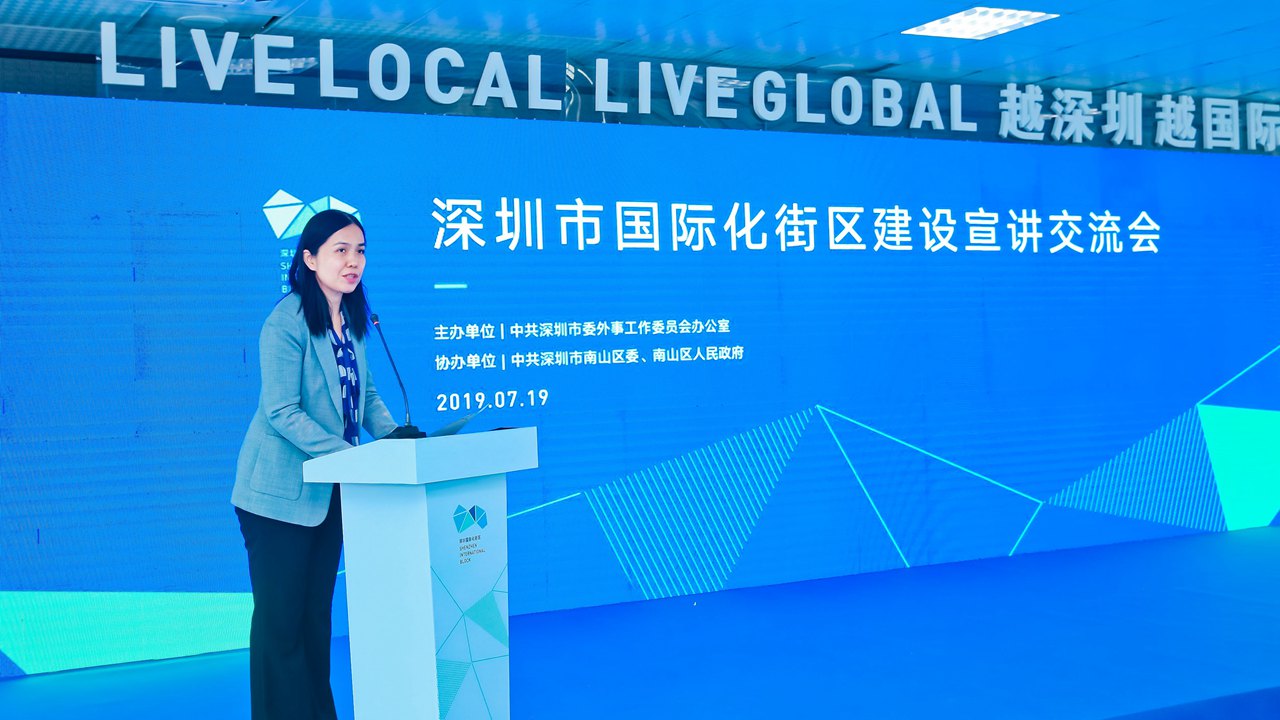SZ to forge ahead with development of intl. blocks
Writer: Yang Mei | Editor: Holly Wang | From: | Updated: 2019-07-22

Cai Ying, head of the Shenzhen Municipal Foreign Affairs Office, speaks at a session on the development of Shenzhen's international blocks held Friday in Shekou Subdistrict, Nanshan District. Courtesy of the organizer
Shenzhen on Friday renewed its commitment to expanding the scope of the existing international communities by developing a host of international blocks in the next four years that are highly efficient, talent-intensive, open, inclusive and favorable for working and living.
This was announced by Cai Ying, head of the Shenzhen Municipal Foreign Affairs Office, at a session on the development of Shenzhen's international blocks held Friday in Shekou Subdistrict, Nanshan District.
It was the first time that Shenzhen officially introduced the concept of “developing international blocks.”
In 2014, Shenzhen unveiled the Implementation Plan on the Promotion of Developing Shenzhen Pilot International Communities. Since then, the city has seen eight pilot international communities nurtured and thriving. They are Yanshan and Shuiwan communities in Nanshan District, Vanke City in Longgang District, Guanlan in Longhua District, Donghai and Shuiwei communities in Futian District, Cuida in Luohu District and Yantian East Coast International Community.
Themed “Live Local, Live Global,” the session was hosted by the Shenzhen Municipal Foreign Affairs Office and supported by the CPC Nanshan District Committee and Nanshan District Government.
Nanshan has an expat population of 28,000 from 155 countries, according to official data.
The city has a three-stage strategy to achieve its goal of developing international blocks, according to Cai.
By 2022, Shenzhen will complete the construction of the first 15 international blocks across the city; By 2025, Shenzhen’s international block network will be formed; By 2030, international blocks will have laid a solid foundation for Shenzhen’s internationalization.
To that end, Shenzhen will focus on the overall planning and development of an international block network, improving public services, introducing more favorable policies to lure and serve talents, making block services smarter, and stepping up publicity on the development of international blocks.
At the session, staff members with Shekou Subdistrict and other local service centers for expats in Nanshan shared their experience in building successful international neighborhoods. Prof. Chen Keshi from Peking University said a world-class international block should be clean and tidy and have a simple style. He believes Japan and Singapore have set a good example in this respect.
After the session, attendees paid a visit to Shekou Management and Service Center for Expats and participated in a cultural exchange activity organized by local Chinese and foreign residents.